Evolution of Back-alley Environments
BackgroundBack-alleys are usually dark corners crammed with illegal buildings and obstacles; the environment is filthy and hard to move around. However, as user connection to the sewerage system gradually took place, back alleys were given new looks. This not only reformed urban landscaping but also improved the hygiene of household environments. First line of defense in disease control is thereby fortified.
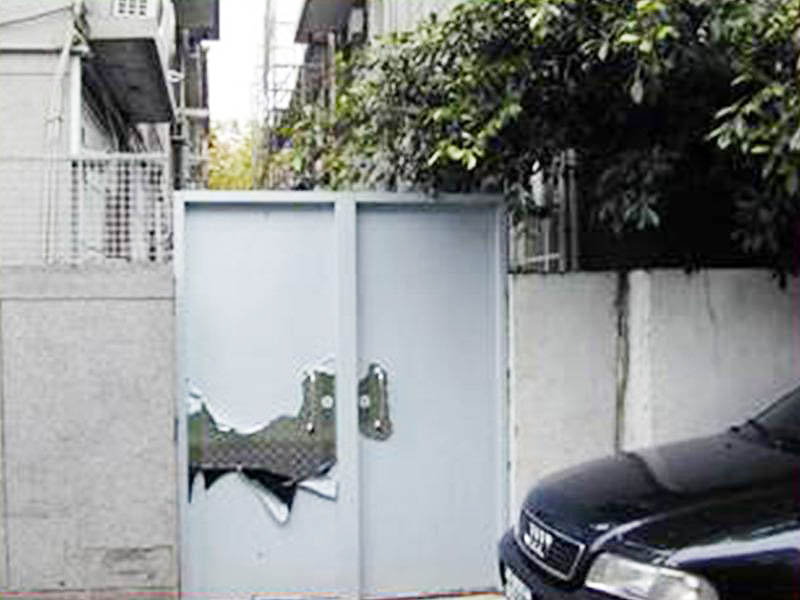
Before demolition of illegal buildings (by residents or by the Construction Management Office)
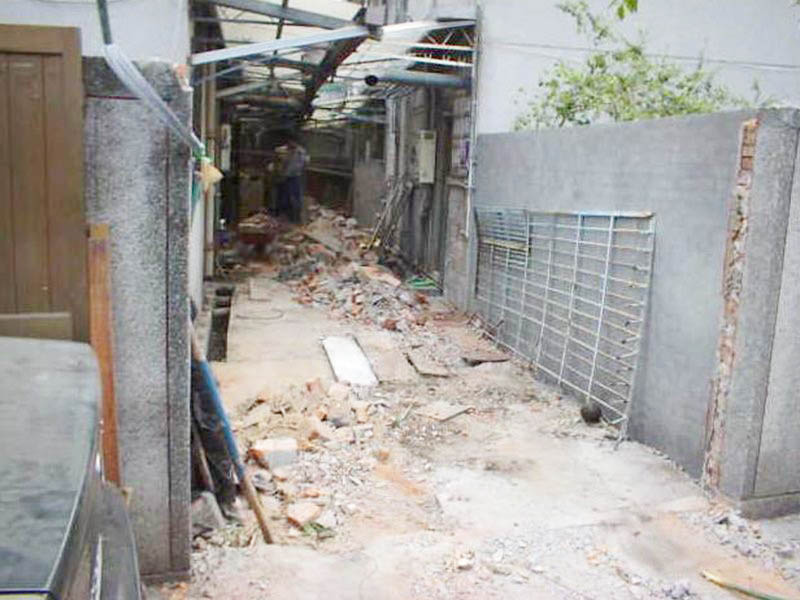
3-m Net width after demolition of illegal buildings
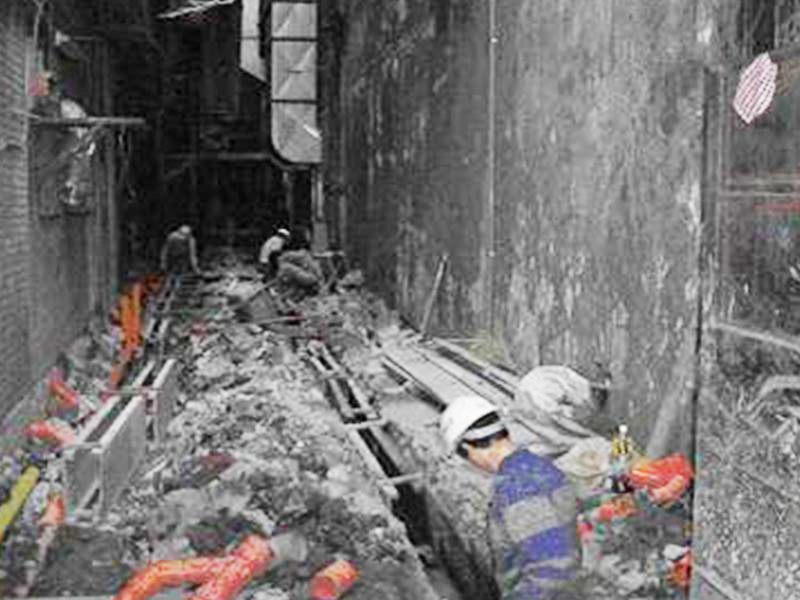
Pipeline connection and drainage construction
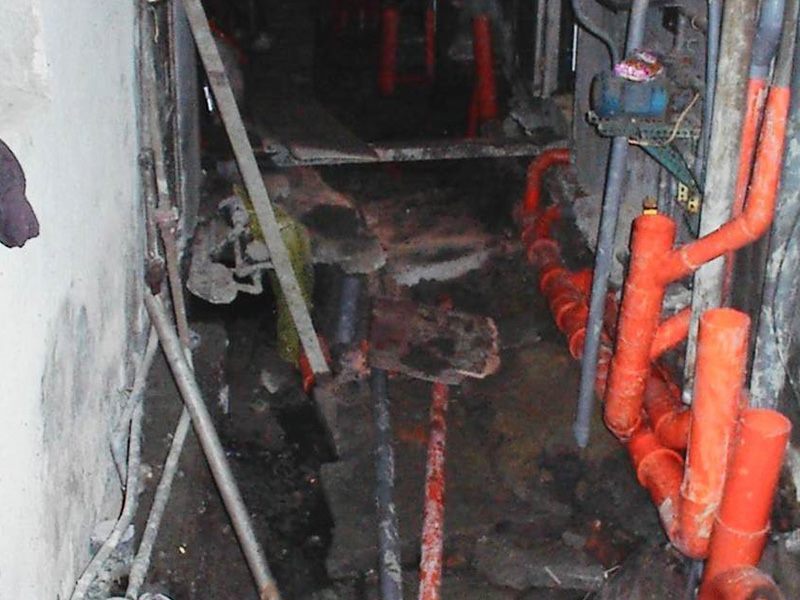
Excavation for connecting users with pipeline
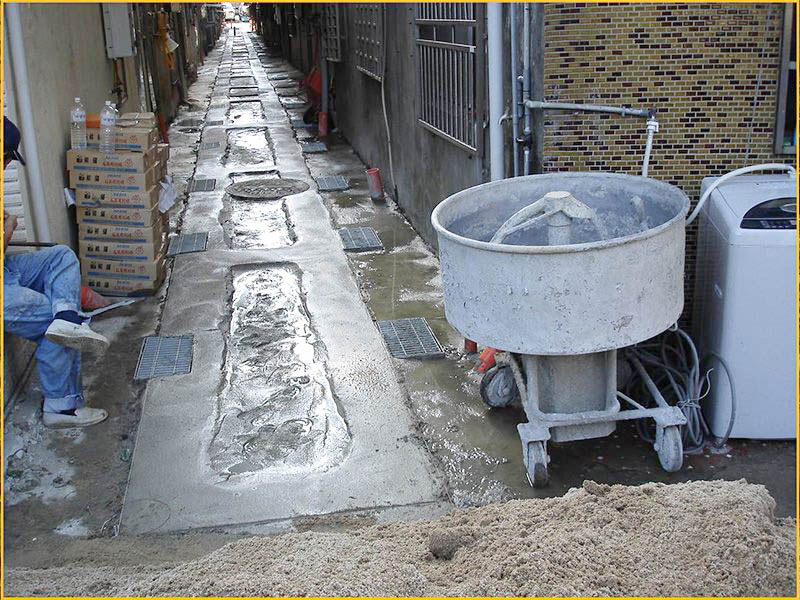
Tile laying over concrete base in progress pic
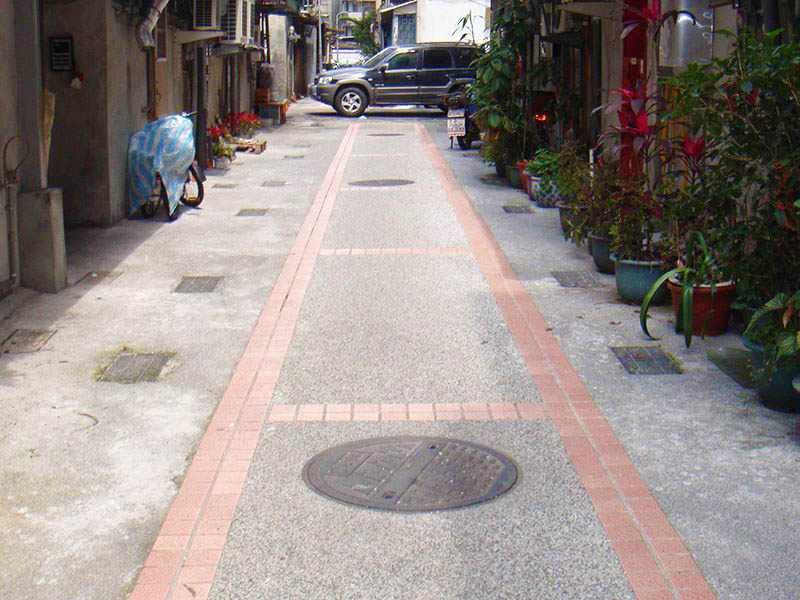
Back alley beautification completed
User connection expedited by cross-department integration – a joint operation between the Construction Management Office’s Illegal Building Demolition Project and Sewerage Systems Office’s User Connection Project.
Beautified FlooringBeautification in obstacle-free back alley: in general, crystal tile pavement is used for alleys with 2-3m width; compressed concrete block pavement is used for >3m alleys.
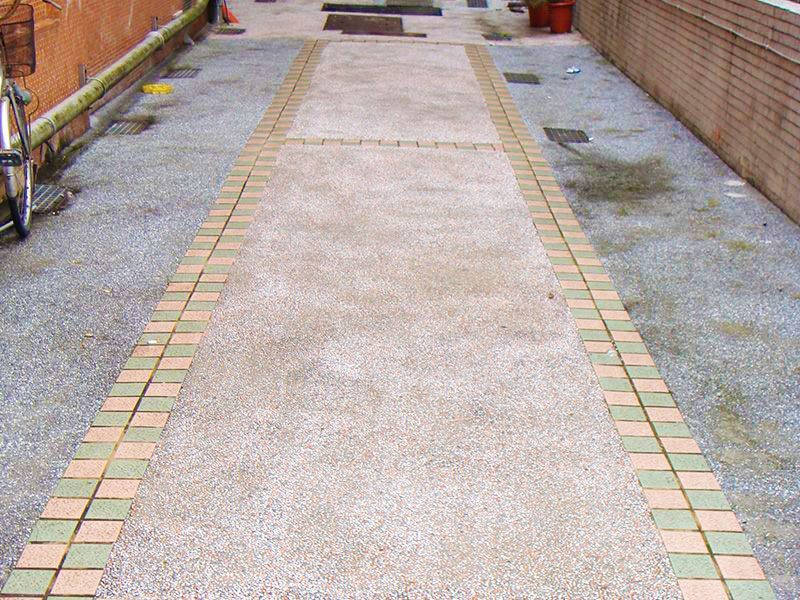
The picture shown above. Cristal Tile Pavement
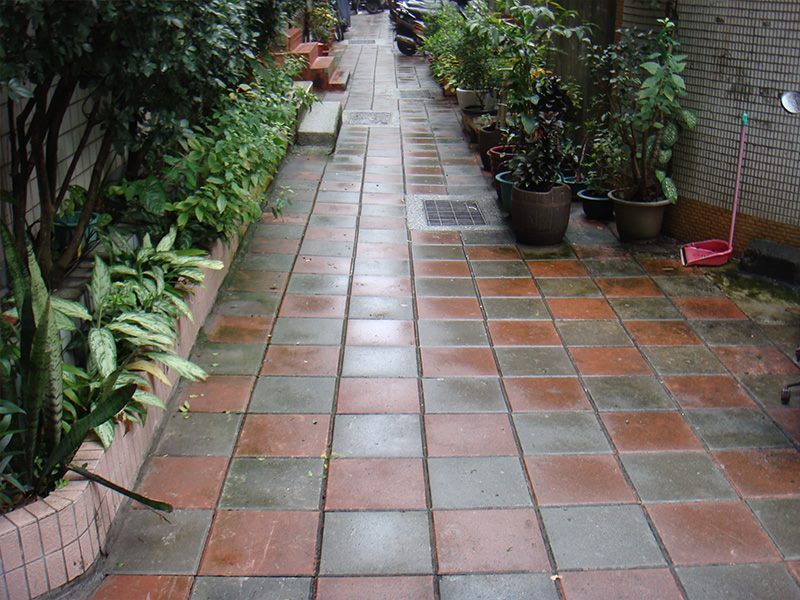
The picture shown above. Compressed Concrete Block Pavement
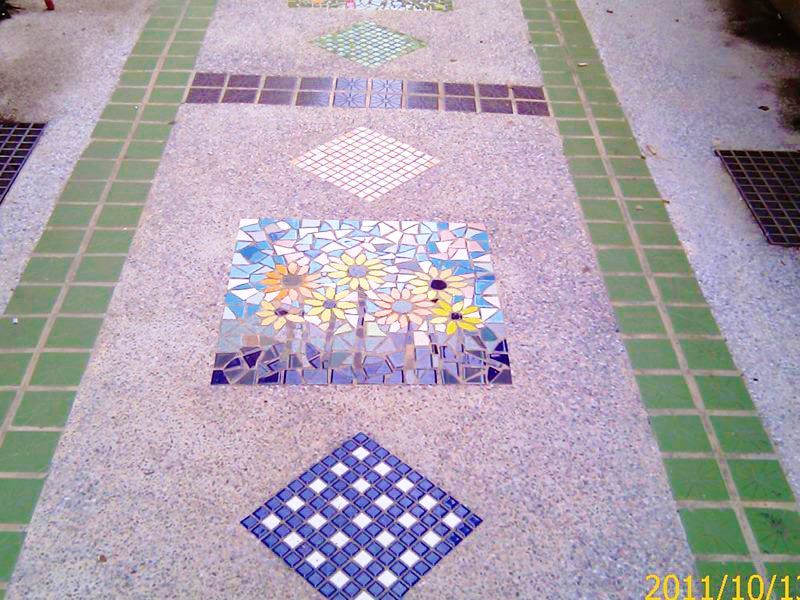
The picture shown above. Kilned patterns
Introducing livelihood beauties into municipal infrastructures by providing citizens with innovative spaces in the back alleys. Back alley beautification provides citizens with bright, clean, safe and healthy spaces for their commuting, leisure, socializing and exercising activities.
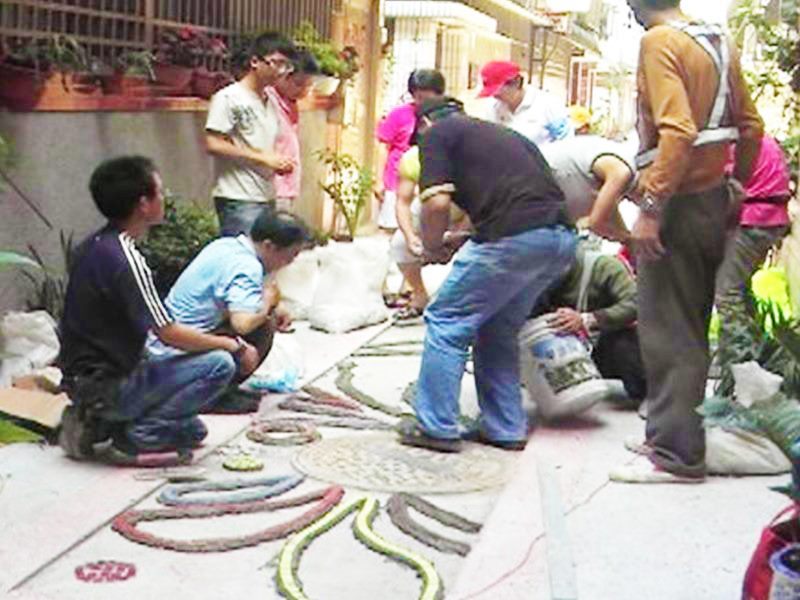
The picture shown above. Citizens participating in back alley beautification
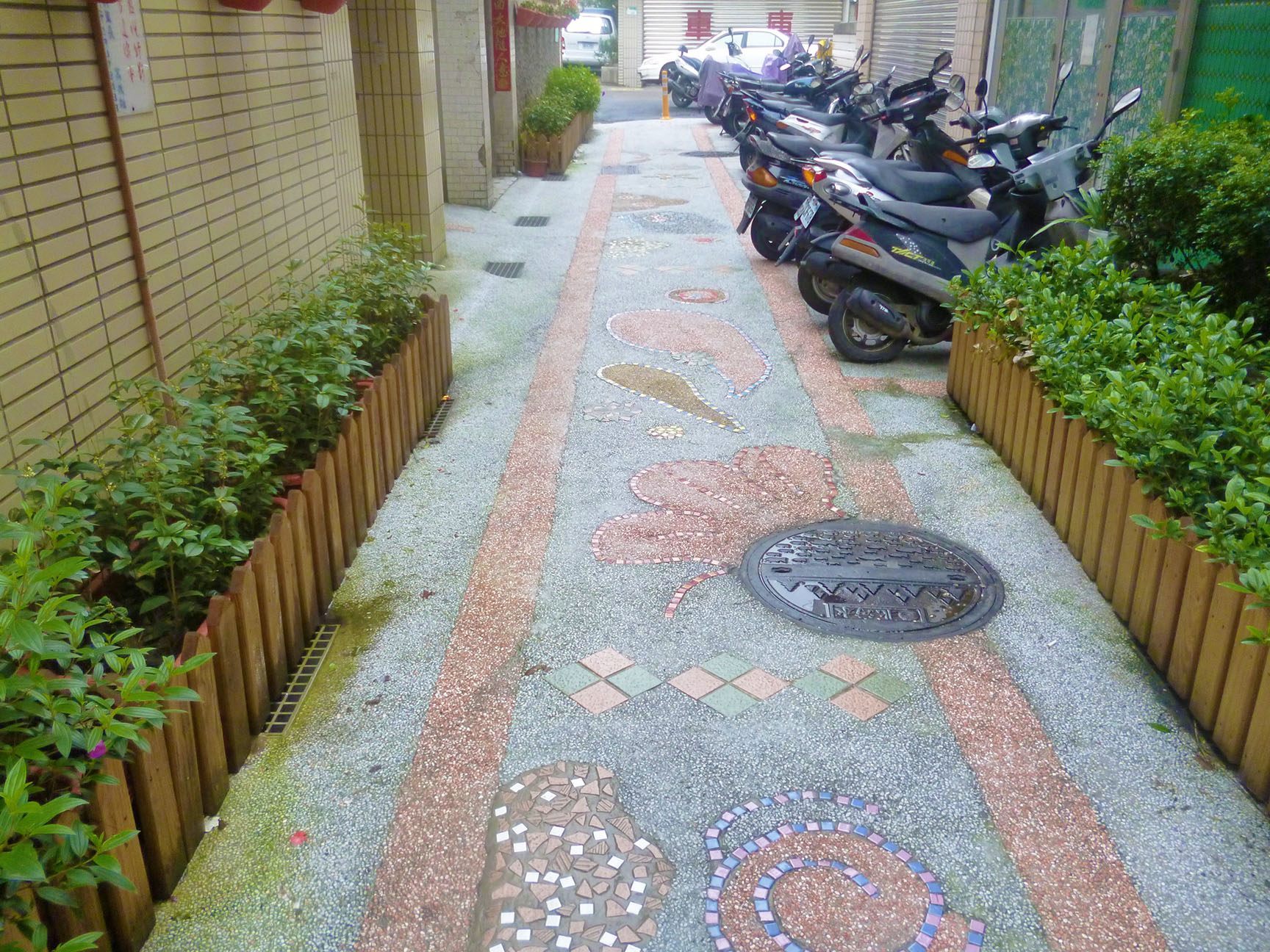
The picture shown above. Art appears in the back alleys
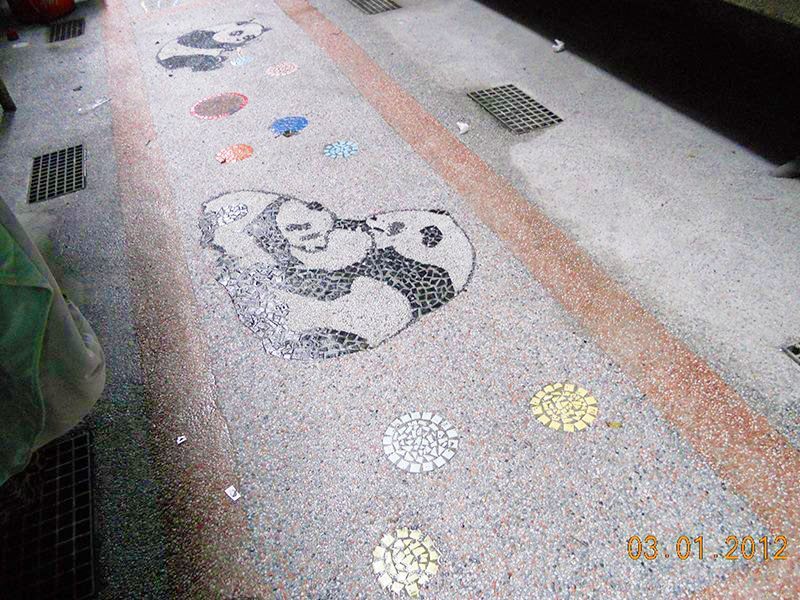
The picture shown above. Art appears in the back alleys



![Taiwan.gov.tw [ open a new window]](/images/egov.png)
